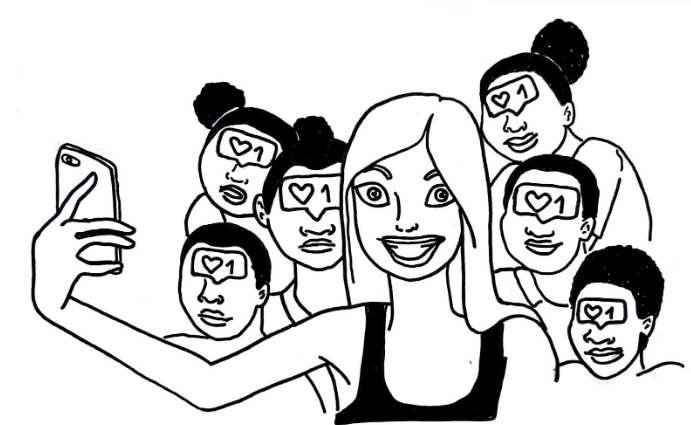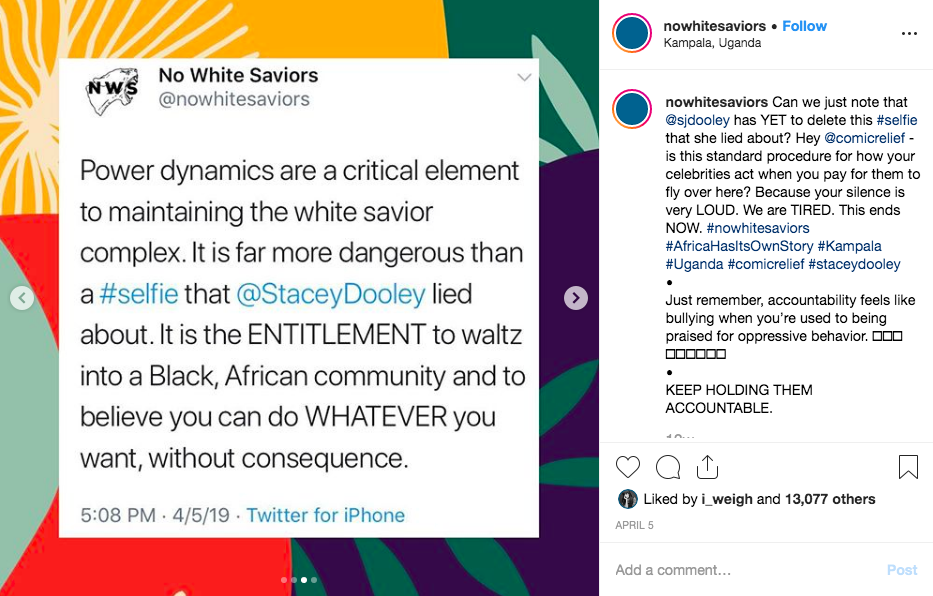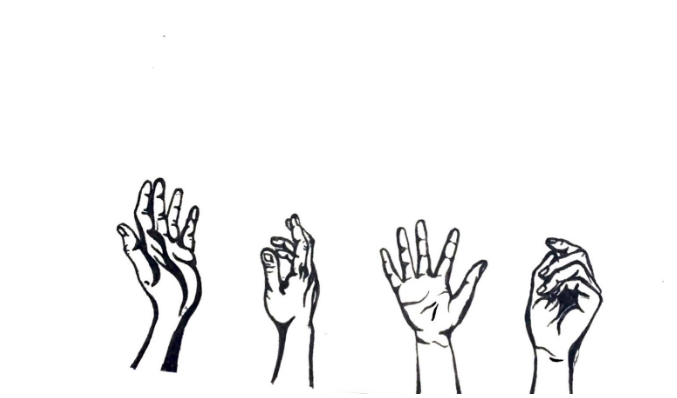NO WHITE SAVIOURS
Responsible volunteering: Good intentions... Bad impact?
By Louise Gilligan

Illustration by Carmella
“Everyone here is a white saviour.”
That was one of the first things the leader of a volunteering safeguarding training session said to a room of a white people, including myself, in a chilly warehouse in Calais. As a white person volunteering with vulnerable people of colour, no matter how good our intentions, we are automatically in a position of power. And this power can cause huge amounts of harm to people who are in extremely vulnerable positions, especially children. Therefore we need to be careful and responsible when navigating the work as a volunteer. On Instagram, the @nowhitesaviours account explains how white saviorism is manifested and the dangers and harm caused by white saviour complex to the individual and the community.

Of course, I don’t want to put people off volunteering, it’s a wonderful thing.
Seeing volunteers turn up everyday at the warehouse, no matter the weather, gives me hope to say the least. But it is only fantastic when it is done in a responsible, ethical and safe way. One of the issues that has been publicly criticised is taking photos with refugees, especially children.
It may seem like an act of solidarity, a pride of a newly formed friendship but it is extremely harmful. It feeds into and helps to sustain the white saviour complex. Black and brown people, especially children, are not accessories. As said by many, would you take pictures with and post photos of a white parent’s child whom you did not know? Nope. Secondly, in the case of a refugee, photos can be detrimental to an asylum application. In the same safeguarding training session that I attended, it was said that a refugee’s asylum application in the UK had once been discarded due the Home Office using facial recognition technology on a photo, placing the refugee where they were not said to have been.

Illustration by Elsa Pearson
A lot of the problems that come with volunteers and volunteering boil down to the lack of information and training. It is vital to know what you should and shouldn’t be doing in the field, not only for the safety of vulnerable people but for your safety too. Field training, legal training and safe guarding training are all provided for the organisations joined with HelpRefugees in Calais and this is how I have most of my information. But unfortunately, this isn’t the case for all volunteering organisations. So, here’s how we can help ourselves to become more responsible volunteers individually:
- Do some research on the organisation before giving your time - lots of people write accounts of their time with organisations, news articles are written if there has been any problems with the running of organisations.
- If you find yourself in an organisation and there has been little to no training, start asking questions - little training can lead to poor decisions being made in the field which then can lead to someone being in danger.
- Do not take pictures with vulnerable kids or refugees or both - it doesn’t make you a better person and Instagram doesn’t need to know.
How to learn more and be well informed...
Of course this list is by no means exhaustible and we should all follow these incredible Twitter and Instagram accounts who provide important information.
Use your time on social media to learn from people who are in the field and have the education/experience/training to speak much more intelligently and coherently on these issues and more:
No White Saviours: @nowhitesaviours (Instagram & Twitter)
Unpopular vote: @unpopularvote (Instagram)
Help Rufugees: @helprefugeesuk (Instagram) @helprefugees (Twitter)
Refugee info bus: @refugeeinfobus (Twitter)
Refugee Youth Service Calais: @RYS_Calais (Twitter)
Art by
Words by
Share this article

